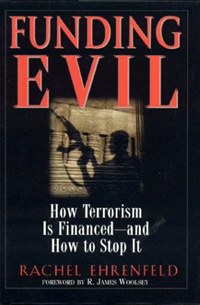This week, the U.S. Senate unanimously passed a bill shielding journalists and publishers from “libel tourism.” The vote on Monday slipped past the Washington press corps largely unnoticed. Maybe it was the title that strove chunkily for a memorable acronym: the Securing the Protection of our Enduring and Established Constitutional Heritage (SPEECH) Act. Journalists and press freedom defenders outside the United States did, however, pay attention to the legislation, which they hope will spur libel law reform in their countries.
The bill, which is expected to sail through the House of Representatives and become law soon, protects U.S. journalists and writers from libel suits filed by repressive governments or wealthy tycoons in foreign jurisdictions such as England, where the law is heavily skewed in favor of the plaintiff. I wrote about the practice, known as libel tourism, last year.
The Senate vote comes after a long campaign by Israeli-American author Rachel Ehrenfeld who found herself slapped with a multi-million-dollar defamation suit by a Saudi billionaire she accused of funding terrorist groups. No problem, you’d think, if the suit was filed in a U.S. court, where the Saudi financier would have to prove Ehrenfeld’s material was false. But this action was brought in London, the libel tourism capital of the world, where the court would demand that Ehrenfeld prove her accusations were true.
Under the new U.S. law any such libel tourism judgment will be unenforceable in the United States. “This will make a difference in how other countries, people in other countries will look into suing Americans,” Ehrenfeld told CPJ. “It’s a victory for everybody who writes in America.”
It’s also a weapon for libel reform advocates overseas.
“It’s brilliant,” said British lawyer Mark Stephens. “If the Americans, as we hope they do, take this robust line, the British are going to have to take notice of it in a more comprehensive way.”
The new British government has signaled that it will introduce some kind of reform but it falls short of what many UK journalists and publishers want.
Stephens, who is a board member of the Media Legal Defence Initiative, sees implications beyond the UK.
“The people who are perhaps going to be the greatest beneficiaries of these kinds of laws are going to be people who suffer in totalitarian regimes where speech is repressed. Everyone focuses on London because that is where … crooks and brigands from all over the world jet in to launder their reputations. But what you’ll find is that there are dissidents who are now able to speak, or who will be able to speak freely about totalitarian regimes and corrupt regimes around the world and expose the misdeeds of those rulers in a way which would otherwise have left them exposed to bankruptcy and penury.”
How will this work? Well, one way will be for online news outlets and bloggers to host their sites on servers in the United States.
“Take the Malaysian bloggers as an example,” says Stephens. “The government may be able to get a judgment against Malaysiakini but it’ll never be able to enforce it, because the servers are based in America. So the judgment will be a worthless piece of paper and that will be true of oppressive places in Southeast Asia, in the Gulf, in Africa in the former Soviet Union and to a lesser extent in South America.”
It’s not going to turn the United States into an offshore tax haven for free speech. That’s something that WikiLeaks founder Julian Assange wants to achieve in Iceland. But Sen. Patrick Leahy’s legislation is setting a new standard for others to follow.
Ehrenfeld thinks fertile ground for reform lies in the Commonwealth, a group of 54 countries, many of which inherited the British legal system.
“The Commonwealth countries may take a lead from that. I’m not holding my breath that Singapore will change anytime soon but Canada, the Supreme Court has already made a ruling that was more towards American law,” she said.
